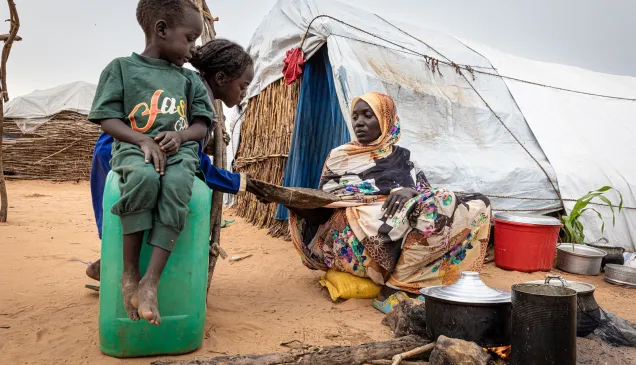Ethiopia: Animals vaccinated in Somali and Oromia regions
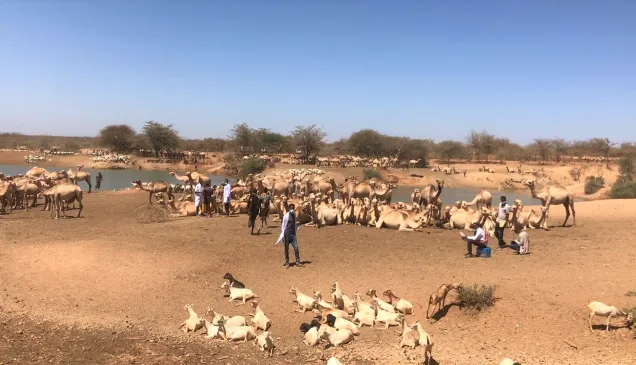
Preparation to conduct ICRC run livestock vaccination around a pond in Qubi, Somali region.
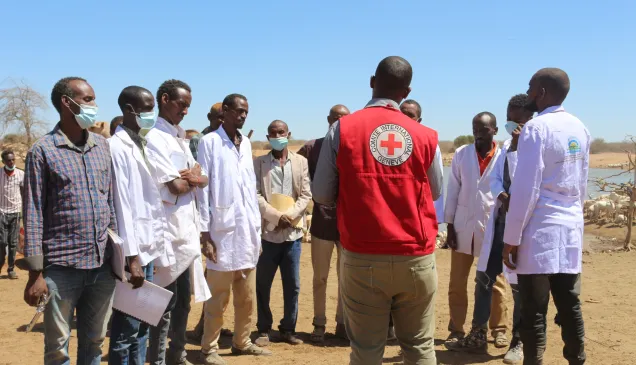
Community animal health Workers receiving a briefing from an ICRC colleague about the vaccination site and target for the day.
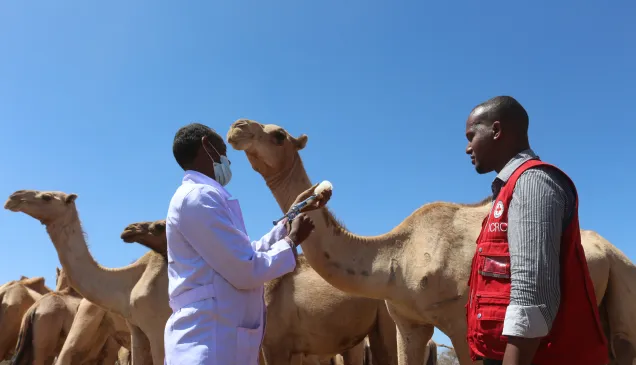
Community animal health worker conducting final preparation to start the vaccination.
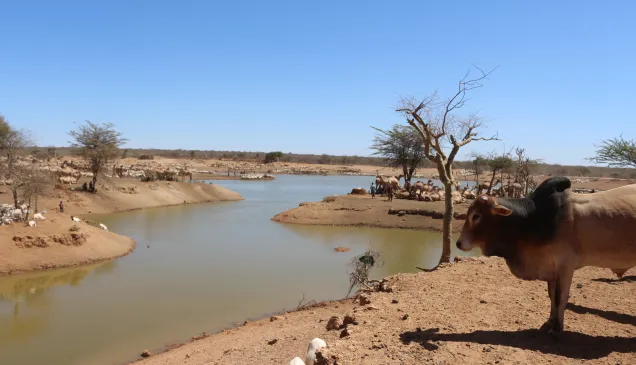
Animals to be vaccinated include camels, cattle, sheep, goats and donkeys.
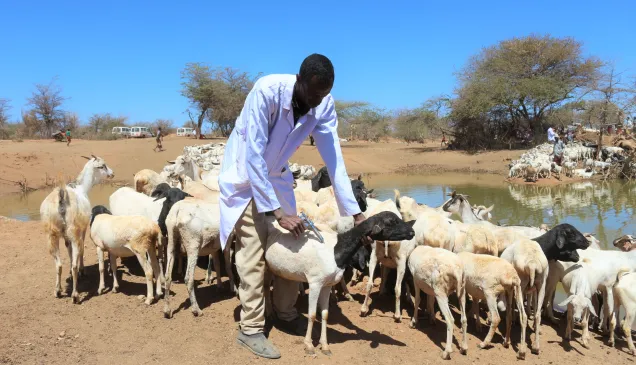
Community animal health worker vaccinating sheep and goats at Qubi vaccination site.
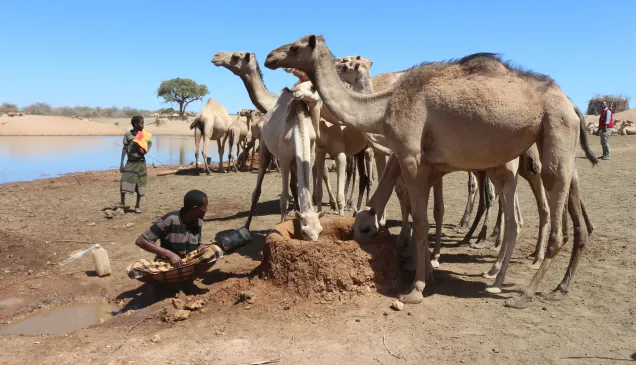
‘‘I am not sure our animals would survive without the vaccination and other services provided by the Red Cross” - Siyad Mahamud, resident of Qubi district.
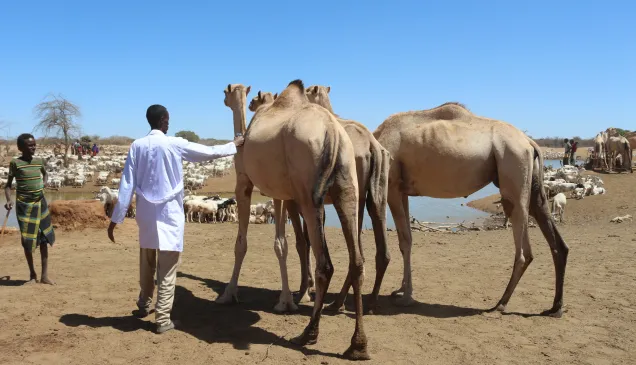
‘‘The vaccination campaign has brought many benefits to the community, including easy access to livestock vaccination, improved health of the animals and avoiding security risks to receive the services.’’ - Kamil Ahmed, head of Qubi district livestock office.
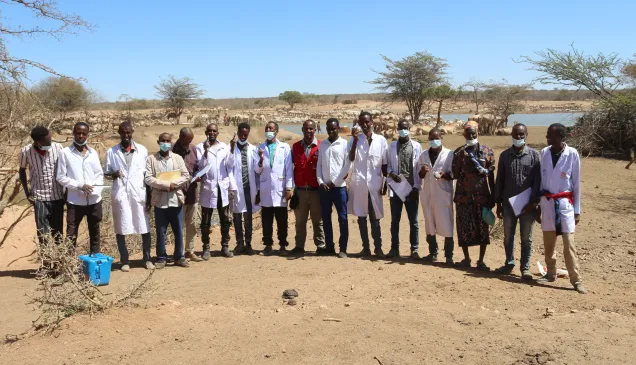
In conflict and violence-affected areas, the ICRC is implementing a program that comprises livestock vaccination, animal health treatment and training of community animal health workers.
''Every year, for the last five years, the ICRC vaccinates animals, such as camels, cattle, sheep, goats and donkeys, to boost the immunity of the livestock against most prevalent animal diseases,'' said Dr Abdiselam Mohammed, economic security expert for ICRC Ethiopia.
The ICRC delivers livestock vaccination and animal health services to conflict and violence-affected pastoral and semi-pastoral communities in Ethiopia. From January to the end of March 2022, over 1.1 million animals will be vaccinated by the ICRC in conflict-affected pastoral and semi-pastoral communities of Somali and Oromia regions, more specifically in Meyumuluke, Qubi, Lagahida, Kumbi and Meyumuluke districts.
''The diseases are identified by a preliminary assessment conducted in collaboration with livestock and pastoral development bureaus of both Somali and Oromia regions,'' he added.
According to Kamil Ahmed, head of the Qubi district livestock office in Somali region, the campaign has brought many benefits to the community, including easy access to livestock vaccination, improved health of the animals and decreased the security risks occurring when pastoralists went to vaccinate their animals.
''Considering the challenges after the conflict, one can question the survival of our animals if the vaccinations and other services were not provided by the Red Cross,'' remarked Siyad Mahamud, the resident of Qubi district.
For pastoral and semi pastoral communities, their animals are the major asset for their livelihood. To sustain this in conflict and violence-affected areas, the ICRC is implementing a program that includes livestock vaccination, animal health treatment and training for community animal health workers.


